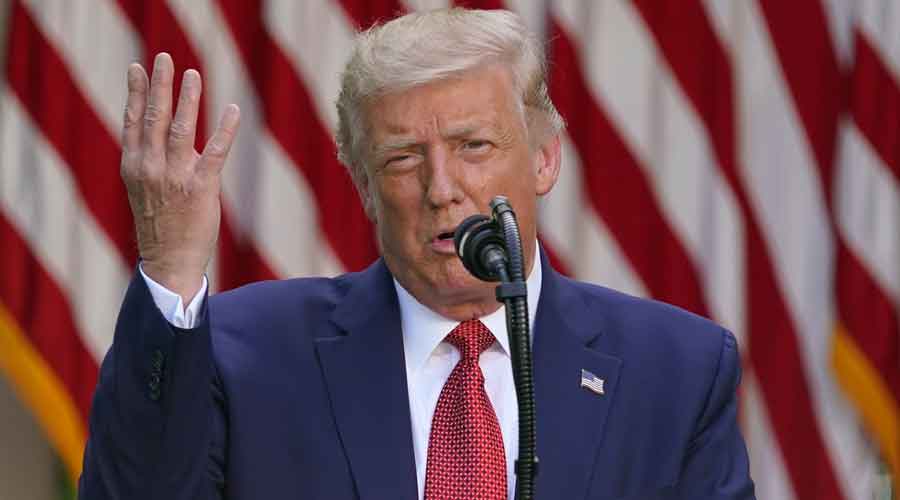The Donald Trump administration has baulked at providing billions of dollars to fund coronavirus testing and shore up federal health agencies as the virus surges across the US, complicating efforts to reach agreement on the next round of pandemic aid.
Senate Republicans had drafted a proposal that would allocate $25 billion in grants to states for conducting testing and contact tracing, as well as about $10 billion for the Centres for Disease Control and Prevention and about $15 billion for the National Institutes of Health, according to a person familiar with the tentative plans.
They had also proposed providing $5.5 billion to the state department and $20 billion to Pentagon to help counter the virus outbreak and potentially distribute a vaccine at home and abroad.
But in talks over the weekend, administration officials instead pushed to zero out the funding for testing and for the nation’s top health agencies, and to cut the Pentagon funding to $5 billion, according to another person familiar with the discussions. The people asked for anonymity to disclose private details of the talks, which were first reported by The Washington Post.
The suggestions from the administration infuriated several Republicans on Capitol Hill, who saw them as tone deaf, given that more than 3.7 million people in the US have been infected with the coronavirus and many states are experiencing spikes in cases.
Though few, if any, of the administration’s proposals are likely to be accepted by Senate Republicans, the disconnect reflects a deep rift between lawmakers who have come to see approving another robust coronavirus relief package as a public health and political imperative and a White House that has been reluctant to follow the lead of the CDC or to assume responsibility for implementing a rigorous testing programme across the country.
With unemployment benefits and a number of other aid measures included in the stimulus package set to expire at the month-end, Congress is rushing to pull together the measure within the next two weeks.
The administration’s position presents an added complication to negotiations between Democrats, who are pressing for a more expansive aid bill, and Republicans, who hope to unveil a narrower opening offer for coronavirus relief as early as this week. The White House declined to comment, and a spokesman for the Treasury department did not immediately respond to a request for comment.
After approving more than $3 trillion in economic relief over the last four months, the package to be considered this month is expected to be the last sweeping coronavirus relief legislation that Congress will consider before the November election.
Mark Meadows, the White House chief of staff, and Steven Mnuchin, the treasury secretary, are expected to take the lead on negotiations for the White House.
Even though Senator Mitch McConnell, Republican of Kentucky and the majority leader, is moving to introduce his own measure as early as this week, some Republicans remain sceptical that another coronavirus package is even needed.
Both parties remain far apart on a number of critical policy areas, including whether to maintain expanded the unemployment insurance benefits, which include an additional $600 per week.
Democrats have said they will accept no less than the $3 trillion proposal House Democrats pushed through their chamber in May, while Republicans are eyeing closer to $1 trillion in new spending and aim to prioritise “kids, jobs, health care and liability protection”, according to McConnell.
New York Times News Service











